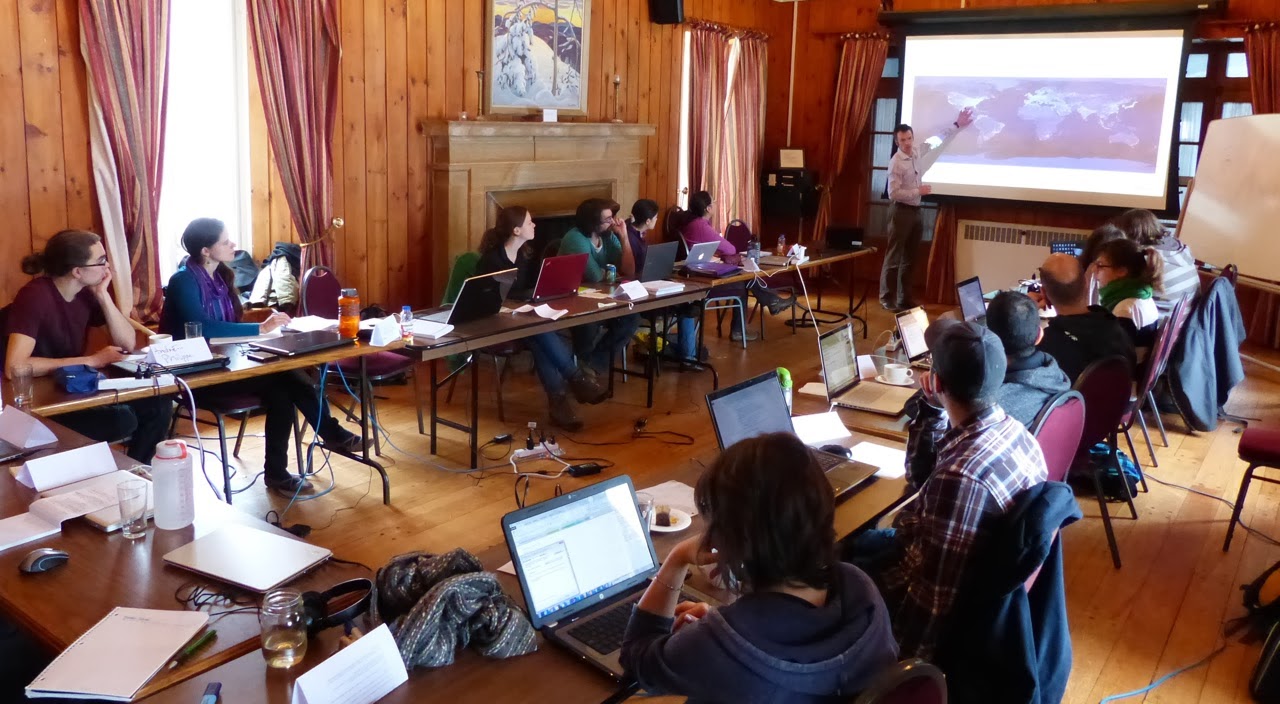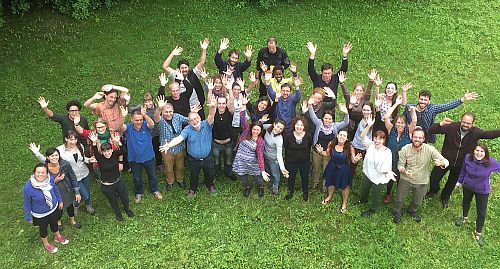QCBS Intensive course in biodiversity science
Summer school in biodiversity modelling
This annual Summer School will give you the opportunity to further your knowledge of Biodiversity Modelling, in an informal and friendly atmosphere. The 2025 edition will be on the theme “Coding biodiversity: building scenarios with a global ecosystem model”.
In our current context, it is urgent that ecologists are trained to project scenarios of future biodiversity. Such biodiversity scenarios, predicting extinctions, community changes and alterations and ecosystem functioning could radically transform our society, like climate change scenarios did. The reputation of the Intergovernmental Panel on Climate Change largely builds on robust general circulation models, simulating the physics and chemistry of the planet. It has been proposed that general ecosystem models could inform policy decisions and improve our understanding of biodiversity and its functioning. Developing such models is however a daunting task that could only be achieved in team.
The general objective of this edition of the Summer School in biodiversity modelling will be to investigate the joint effects of biodiversity changes and climate change on ecosystem functioning using a custom version of the Madingley model. Students will learn how to collaborate in a complex coding problem with an inter-disciplinary team, and we encourage people with diverse backgrounds to apply and compose this inter-disciplinary teams.
Summer School in Advanced Statistics for the Life Sciences
This annual summer school will provide the opportunity to deepen your knowledge in advanced statistics, in a convivial environment.
The main theme of this summer school is “Hierarchical Models in the life sciences”. The course aims to introduce hierarchical models from both a theoretical and practical point of view. Hierarchical models with and without constraints (e.g. spatial and/or time) as well as multivariate hierarchical models will be presented. Everything will be done using R with an introduction to Stan. Bring your dataset!
Path Analysis in Ecology
Offered every year by Bill Shipley, one of the world experts on path analysis from Université de Sherbrooke.
This course is for both Master’s and PhD students.
Ecologists often pose cause-and-effect hypotheses involving several variables in systems for which controlled randomised experiments are not possible. When this occurs one must use a set of statistical methods called “structural equations modelling” or “path analysis”. In this intensive five-day course you will learn the basics of these methods and how to apply them in your ecological research. Theoretical sessions will be interspersed with practical sessions using the free R software. You are encouraged to use your own data sets whenever possible.





